Many books about interviewing list lots of questions or types of questions that you need to be prepared to answer. This is not the route to communicating your true value when interviewing for a senior executive position.
The secret to conveying your value in the limited time that is available in an interview, actually requires the opposite approach. Namely, a very strong focus on the answers and the delivery of those answers rather than worrying too much about the questions. The reason being that you, the interviewee, have control over the answers in a way you don’t have control over the questions.
Taking this perspective, you can bring about a rather subtle transfer of power from the interviewer to the interviewee. You can’t ignore the questions of course, it’s just that the thinking required for this approach begins at the other end.
Let me explain what I mean.
Rather than starting by listing questions you take a strategic view and ask yourself, “What are the underlying needs of the interviewers, hence what are the winning criteria and how would I imagine and describe the winning candidate?”
Then you ask yourself, “How do I package and shape what I have, in order to meet those winning criteria and fit the winning candidate’s description?” And additionally, “How do I convert this winning strategy into a set of messages that can be delivered during the interview?”
The aim is to match the messages you have written with the questions that are being asked rather than feeling victim to the questions and leaving the interview with key material left unsaid.
This approach to interviews does take time and effort. You need to not only research the role, but also apply enough independent thought and imagination to build a picture of their most pressing needs. Further it will not be enough to glance through your cv in the hope of stumbling upon a strategy. You will need to take time to build self-knowledge, ideally from a few different sources, to establish where you have potential advantages over the competition. Then armed with your list of advantages, you need to write and rehearse the messages that convey the relevant aspects of your personal value proposition.
If you do this thoroughly then you will have built a strong foundation, and you can progress to the next challenge, which is that companies and recruiters meet a lot of people.
Executive search firms typically screen more than fifty candidates for senior positions. They then meet face-to-face with more than twenty candidates. Finally, they put five or six in front of their clients for “first-round” interviews. And if that wasn’t bad enough all of this happens over an extended period due to people’s availability. So it is easy to get lost in the crowd or forgotten over time.
I have designed an on-line course called Mastering the Interview that explores several techniques that you can deploy to address this challenge. One of these is storytelling.
Stories are powerful. People remember stories better than they remember individual facts. You can use stories in interviews to support your claims and bring your messages to life.
What you need to do is to look at your history and identify stories that you can use to support your strategy and reinforce your messages. The more diversity that you can get the better. Try to find a selection of stories that provide different lenses onto who you are and what you can do.
The stories must be quite brief as you need to weave them into the conversation, and generally the shorter the story, the easier that is. It can be just a few sentences, or it can stretch a couple of minutes– but not longer than that.
You need to be concise, so as you rehearse practice being economical with language. That said, you want to be detailed around the points that matter – what was your contribution, how were you thinking, how did you and other people react to a situation, what was the outcome and what did you learn?
The more career experience you have, then the greater your resource of stories, but you don’t need dramatic events, often there is a good story in the smallest happening.
As with building your foundation, making yourself memorable with stories is not a trivial exercise. But senior executive roles are highly sought after and must be won in intense competition with other well qualified candidates. Putting effort into the effective communication of your value proposition is essential for success.


